Thoughts/Comments on RO (Reverse Osmosis) water systems
philwojo
12 years ago
Featured Answer
Comments (28)
deeageaux
12 years agoasolo
12 years agoRelated Discussions
Faucet for Reverse Osmosis (RO) System
Comments (7)I wonder if the warning has not to do with flow rate or pressure, but with the corrosive nature of RO water. Being so pure, RO water is supposedly highly aggressive against some metals, including copper piping. This could not only corrode the fixture over time, but also leaches metals into the drinking water. Brass and high-quality stainless are supposed to be more inert, or inert plastic liners inside the fixture. One reason I didn't run my retrofit RO drinking water to my plumbed in coffeemaker or to my refrigerator icemaker, as I had runs of copper tubing in the walls to those appliances....See MoreWhole house Reverse Osmosis system
Comments (21)I’m not a pro by training but I spent a solid 4 months (every single day) researching, reading, talking to chemical engineers at the local university, plumbers, etc. I exhausted myself day and night. I slept with my phone waiting for replies from a water chemist engineer from Germany. Stress. Bought a house with a well. Had water tested at lab and I had just about every problem imagined. Forget the local water treatment salesmen, unless you just want to make a donation. Waste of time and inefficient. I wasted a lot of time with those companies before I realized they didn’t know a damn thing. First test water for EVERYTHING! Yes, you have to go to a lab and probably spend $250.00 or more. Hardness PH bacteria levels iron sulfur and Sulphates TDS, alkalinity, manganese, everything! Get results and go from there. I had high iron, hardness, iron bacteria, dangerously high sulphates, rotten egg smell, all with a low Flow rate well. This matters! After handling all of my issues I was stuck with sulphates which is hard to deal with. R/O is the only way. This means I was going to be limited to having drinkable water in one location in my brand new house...the kitchen sink. I couldn’t even use the water dispenser or ice machine from my fridge because there was no practical way to connect an r/o system. I wanted a full house r/o where my kids could get water from their bathroom sink...but I have copper pipes so I didn’t think it was an option. ****IT IS AN OPTION no don’t have to re-pipe. BUT YOU DO HAVE TO TREAT OTHER ISSUES FIRST. Hard water doesn’t do well going into R/O system. Simply put, you r/o for the entire house and after R/O system you install another system which is a re-mineralizing the water to neutralize the PH and make it taste REALLY GOOD! The neutralized water (ph around 7-8) will not corrode anything. Water tastes just like the ph water from “smart water” You will spend some money. There will be an adjustment period while you fine tune everything. It’s worth it at the end. Licensed plumber for install. Water salesmen can not do this. Good luck. Bad water sucks, I almost put our house back on the market because nobody could figure it out. Eventually, some very kind and intelligent people helped me. They weren’t selling anything or getting anything in return. They just simply took the time to help someone in a bad situation. I am grateful and found this post and wanted to share. There is a way to fix water, no matter how bad....See MoreTroubleshooting water softener/reverse osmosis water issue
Comments (2)1) Do service the water softener. It's not working right. 15 years is a long time. Your media is almost certainly toast, but I would suggest complete service on the rest of the unit also. Probably a couple hundred bucks. This is unavoidable. Service it or replace it. However, your problem will not go away unless you do one or the other. 2) Highly recommend 30-micron particulate filter upstream of the water softener. Easy and cheap. I agree with your RO tech. Your problem is upstream. Fix that and your RO system will require filter-change maybe once a year or so....See MoreRecommendations for water filtration/reverse osmosis system?
Comments (1)I'd suggest a whole house system. Got ours from Aquasana. Blue Rhino is the name and we're very happy with it. It goes close to the point where your water comes in to the house. Ours is in the basement. For point of use, we have a Berkey stainless that sits on the counter in the kitchen next to the sink. If you go by actual toxin removal, Berkey wins from our research. You take in at least as much if not more nasty chemicals through the skin in showering/bathing than you do in drinking water. Something to keep in mind....See Morekaseki
12 years agokaseki
12 years agonanj
12 years agophilwojo
12 years agothull
12 years agophilwojo
12 years agoasolo
12 years agokaseki
12 years agojscout
11 years agopollopacific
11 years agojakvis
11 years agododge59
11 years agowill2kz
11 years agoCavimum
11 years agowill2kz
11 years agoCavimum
11 years agophilwojo99
11 years agowill2kz
11 years agocaliente63
11 years agoMichaelsAd
11 years agowill2kz
11 years agonerdyshopper
8 years agoHU-608011519
4 years agoPaul F
4 years agolast modified: 4 years agokaseki
4 years ago
Related Stories

HEALTHY HOMEHow to Choose a Home Water Filtering System
Learn which water purification method is best for your house, from pitchers to whole-house setups
Full Story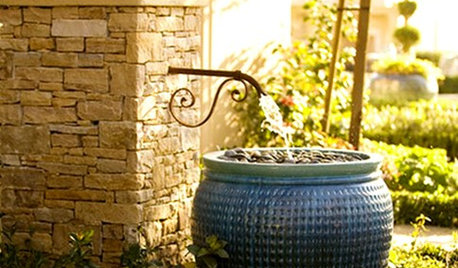
GREEN BUILDINGJust Add Water: Rain Barrel Magic
Take your rainwater storage from practical to beautiful with a new breed of design-friendly rain barrels
Full Story
SAVING WATER11 Ways to Save Water at Home
Whether you live in a drought-stricken area or just want to help preserve a precious resource, here are things you can do to use less water
Full Story
EARTH DAYGrow a Beautiful Garden With Ecofriendly Greywater
Reducing home water waste means lower bills and a healthier planet. Here's how to set up a greywater home irrigation system that can help
Full Story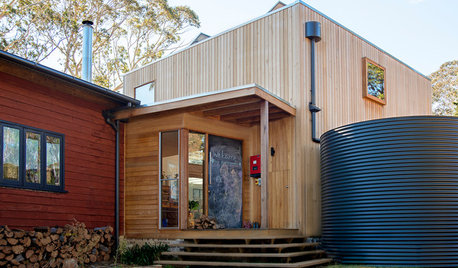
SAVING WATERIs a Rainwater Cistern Right for You?
These extra-large containers reduce runoff and save on the use of potable water for the landscape
Full Story
LANDSCAPE DESIGNCalifornia Says Goodbye to the Sprawling Ornamental Lawn
New state rules will effectively limit turfgrass to 25 percent of the landscape in most new and renovated yards
Full Story
SAVING WATERHouzz Call: Are You Letting Go of Your Lawn?
Many facing a drought are swapping turf for less thirsty plantings. If you’re one of them, we’d like to hear about it
Full Story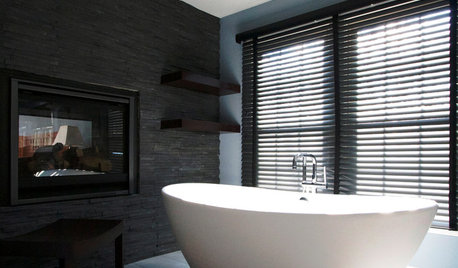
BATHROOM DESIGNDreaming of a Spa Tub at Home? Read This Pro Advice First
Before you float away on visions of jets and bubbles and the steamiest water around, consider these very real spa tub issues
Full Story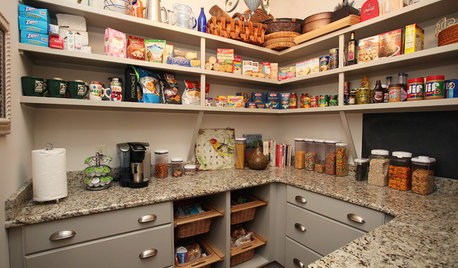
LIFEHow to Prepare for and Live With a Power Outage
When electricity loss puts food, water and heat in jeopardy, don't be in the dark about how to stay as safe and comfortable as possible
Full Story
FEEL-GOOD HOMEInherited Pieces: Embrace the Approach That Works for You
How you remember and honor loved ones through heirlooms is your decision alone
Full Story


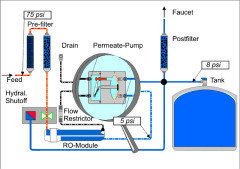
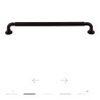

thull